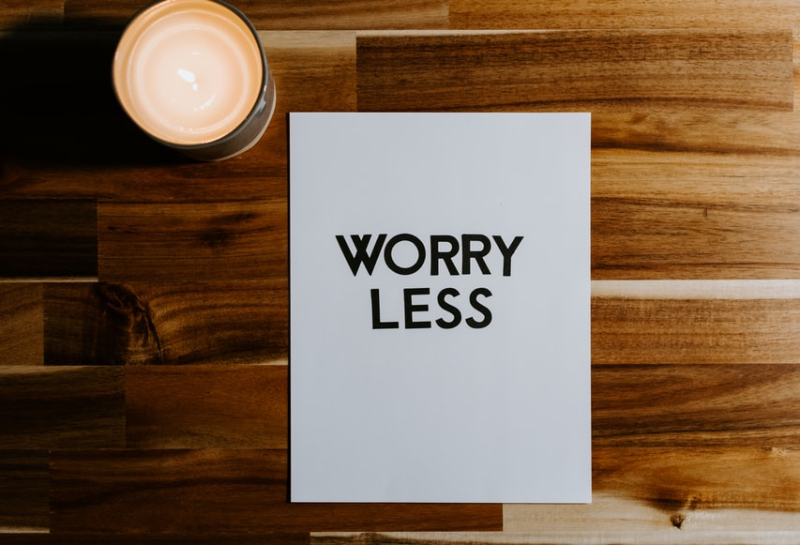Anxiety affects approximately 40 million American adults. Anxiety disorders are manageable with the appropriate treatments. However, only one-third of adults with anxiety seek treatment. For many, anxiety has become a companion of everyday life.
Many adults believe that they can function while experiencing high anxiety. A variety of factors can contribute to the impression that you could be a high-functioning anxiety person, such as:
- Remote work, which means your condition is less likely to affect your employability/ productivity
- Using digital platforms to maintain social connections, which can reduce the true impact of social anxiety
- Managing most shopping and service requirements online, which helps create a safe distance between you and others
However, there is no such thing as high functioning anxiety. Anxiety drives unhealthy and harmful coping mechanisms that can dramatically affect your physical and mental health.
Anxiety can drive isolation and loneliness
Living with anxiety can make it difficult to maintain social relationships with friends or even a loved one. Many individuals with anxiety complain about loneliness and isolation, which can both contribute to depression in the long term. When your anxiety disorder cuts you off from your community, it's essential to seek support from a qualified therapist. It can take a long time to learn to manage and reduce your anxiety levels. Many therapists often recommend adopting a pet. An animal can become a loyal and caring companion when you face an anxiety crisis.
Additionally, a calm pet with a quiet and caring disposition can make a fantastic emotional support animal. An emotional support animal can help challenge yourself to overcome anxiety-driven situations. It's worth mentioning that landlords and employers tend to be open to bringing emotional support pets on premises, making it easier to fight off loneliness.
You look for an impossible cure to stop it
Anxiety is not a cold you can cure with antibiotics. It is a long process to manage and overcome anxiety disorders. As a result, those who seek a rapid solution are likely to put themselves in harm's way. Indeed, hard substances and alcohol can provide some form of relief at first. However, they can create an addiction that becomes essential for you to function in the long term. For example, you might come across unprescribed substances that promise euphory-boosting results. The feel-good sensation does not cure your anxiety. It only masks it temporarily. As soon as the effects disappear, the anxiety is back. As you develop a form of dependence, prolonged consumption can increase your anxiety levels as you become fearful of periods of sobriety. That's precisely what makes anxiety-driven drug addiction recovery a lifelong process, as explained here https://www.sunshinebehavioralhealth.com/rehab-faq/. There is no miracle pill you can take to eliminate anxiety. The sooner you reach out for help with your disorder, the safer you can be from harmful addictive behaviors.
It affects everyday life decisions
Anxiety can stand in between you and your responsibilities. Take a look at this fictional account inspired by individuals living with social anxiety, https://www.verywellmind.com/social-anxiety-disorder-life-3024297. Something as simple as making a call can become the source of never-ending worries. It's not uncommon for individuals with social anxiety to delay important phone calls or try to avoid them in a way or another. They often need to rehearse the call conversation before they get to the phone. This can affect their professional career, as it can impact relationships with customers or managers.
But even simple day-to-day choices can become difficult. Something as mundane as going to the hairdresser can also contribute to stress. You may worry about maintaining the conversation with the hairdresser, for instance. Individuals with anxiety prefer to stick to one-word responses whenever possible, as they are nervous about talking to others. As a result, the interlocutor becomes less engaged in the conversation, and the person worries about being boring.
It's not a part of your creative power
It is commonly acknowledged that anxiety and creativity belong together. Many acclaimed artists have shown high levels of anxiety, such as Woody Allen, Lady Gaga, and actress Amanda Seyfried. While anxiety exists in every profession, creative individuals are more prone to disorders as their profession involves imagining all the what-ifs. Yet, it is inaccurate to assume that your anxiety is part of your identity as a creative person. On the contrary, anxiety does not make you a better creative. It substantially reduces your creative skills. Indeed, it can contribute to debilitating self-doubt, low self-esteem issues. Researchers even believe that anxiety related to creativity can harm your chances of achievements in the long term. In other words, you don't have to accept anxiety to maintain your creative identity. In fact, it's the opposite!
Can you function with high anxiety? Your mind might say yes. But doctors say no. High anxiety can dramatically affect your happiness, creativity, and everyday life choices.


